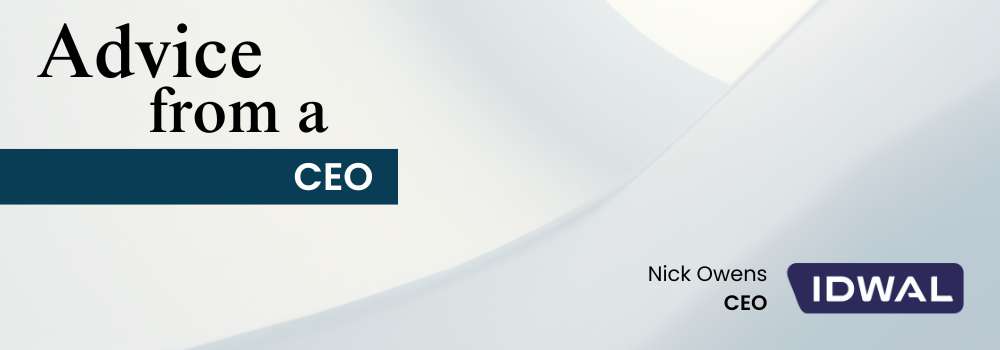Changing Course
Share this blog
Latest Maritime Vacancies
Business Development – Shipmanagement – Dubai
Office Manager – London
Shipping Paralegal – London
Shipping Manager – Singapore
Office Administrator – London
Advice from a CEO: Nick Owens, Idwal

When I look back at the best advice I’ve received in my career, one particular conversation stands out. Early in my journey of establishing Idwal, a mentor told me something that’s shaped not just my leadership style, but our entire company ethos: “In an industry as traditional as shipping, always build bridges, not walls.”
At first glance, it might sound like a cliché, but this advice proved invaluable as we worked to transform how the maritime industry approaches vessel inspections and data. The shipping industry has centuries of established practices, and when we started introducing technology-driven solutions, we faced our share of scepticism.
The temptation was there to position ourselves as disruptors, to emphasise how different we are from traditional inspection methods but that advice kept echoing in my mind – build bridges, not walls. Instead of positioning technology as a replacement for traditional maritime expertise, we focused on how it could enhance and support the deep knowledge that already existed in the industry.
This meant spending time with experienced surveyors, understanding their processes, and learning what made them excellent at their jobs. Rather than simply digitising paperwork, we worked to build tools that would make their expertise more powerful and their insights more accessible. The bridge we built wasn’t just between old and new – it was between people who shared a common goal of making shipping safer and more efficient.
This bridge-building approach has been crucial in helping us scale Idwal. By respecting and incorporating traditional maritime knowledge while introducing new technology, we’ve been able to create solutions that truly serve the industry’s needs. It’s helped us grow from a small team in Cardiff to a global operation that’s trusted by some of the biggest names in shipping.
The advice has also shaped how we handle internal changes. When we’re introducing new systems or processes, we focus on building bridges between different departments, between technical and non-technical team members, and between our development team and our users.
Looking back, I realise this advice wasn’t just about managing change or implementing technology, it was about understanding that progress doesn’t have to mean leaving behind what works; it’s about finding ways to connect different perspectives, experiences and expertise to create something better than either could achieve alone.
Today, as we continue to grow and evolve, this principle of building bridges remains at the heart of how we operate. Whether we’re developing new features for our platform, entering new markets, or hiring new team members, we always look for ways to connect rather than divide, to include rather than exclude.
In an increasingly polarised world, where it’s easy to champion the new at the expense of the established, this advice remains more relevant than ever. The future of maritime technology – and perhaps business in general – lies not in disrupting for disruption’s sake, but in finding ways to bridge the gap between tradition and innovation.

Nick Owens, Idwal CEO
An experienced executive of over 20 years, Nick was appointed as Idwal CEO in 2020 and has led the rapid growth of Idwal through its digitalisation journey and management buy-out from former shareholders Graig Shipping PLC, establishing Idwal as a globally independent ship inspection and solution provider, with a reputation for sustainable and innovative services in an evolving marketplace. As a strong believer in the adoption of technology solutions and the power of data to deliver transformative results, Nick is now driving development of Idwal’s technology and data offering to further penetrate different maritime markets.